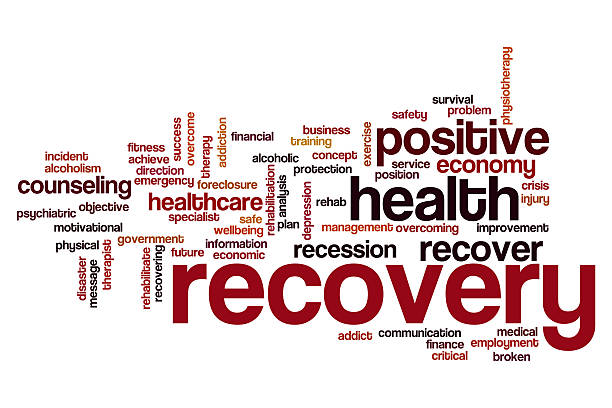
Understanding the Substance Abuse Counseling Landscape in Virginia Beach
Substance abuse counseling is a crucial issue in Virginia Beach, where various programs and treatment facilities offer tailored services to individuals struggling with addiction. Virginia Beach’s substance abuse counseling landscape is diverse, including outpatient programs, residential facilities, and community-based support structures. Each of these entities plays a pivotal role in the recovery process.
Virginia Beach substance abuse counseling services often include personalized therapy sessions, group counseling, and educational programs aimed at understanding addiction’s complex nature. These services are designed not only to support the individual in their recovery journey but also to engage families and communities, recognizing the interconnectedness of support systems.
Different Types of Substance Abuse Counseling Programs
Virginia Beach offers a spectrum of substance abuse counseling options, each tailored to meet specific needs. The programs range in intensity from outpatient services to residential treatment centers, allowing individuals to find the right fit for their unique situations.
- Outpatient Programs: These provide flexibility, allowing individuals to receive therapy and support while maintaining their daily responsibilities.
- Intensive Outpatient Programs (IOP): Structured to offer more rigorous treatment with a focus on relapse prevention and coping strategies.
- Residential Treatment: Ideal for those needing a focused environment, offering round-the-clock care and support.
- Dual Diagnosis Treatment: Addresses co-occurring mental health disorders and substance abuse, focusing on comprehensive wellness.
How Personal Experiences Shape Recovery
In my 20 years of work with Virginia Beach substance abuse counseling, I’ve witnessed countless stories of resilience and transformation. Each journey is unique, often beginning with the courage to seek help. For many, the turning point is the realization that they cannot battle addiction alone and recognizing that professional guidance is crucial.
Take Sarah, for example, a mother of two who found sobriety through a supportive outpatient program. Her story is a testament to the impact of tailored counseling and community support. Today, she mentors others, proving that change is not only possible but also sustainable with the right resources.
These stories underscore the importance of personalized care in Virginia Beach substance abuse counseling. Understanding individual triggers, histories, and aspirations makes a significant difference in the recovery outcome.
What Qualifies as a Virginia Beach Substance Abuse Counseling Emergency?
An emergency in substance abuse counseling typically involves situations where an individual is at immediate risk due to substance use. This risk can manifest as overdose, suicidal ideation, or severe withdrawal symptoms. Responding quickly in these emergencies is vital to ensuring the safety and well-being of the individual involved.
Emergency interventions often include immediate medical attention, followed by a structured plan to transition the individual into a suitable program. Virginia Beach substance abuse counseling services are equipped to handle such high-stakes scenarios, providing crisis management and stabilization as a first step towards recovery.
- Identify the emergency situation and assess the immediate risk.
- Contact emergency medical services if necessary.
- Engage a crisis intervention team to provide immediate support.
- Transition the individual to appropriate treatment programs for further care.
The Challenges and Opportunities in Substance Abuse Counseling
Substance abuse counseling in Virginia Beach faces both challenges and opportunities. One primary challenge is the stigma surrounding addiction, which often hinders individuals from seeking help. Additionally, resource limitations can impact the availability and accessibility of services.
Despite these challenges, there are abundant opportunities for innovation and growth. By leveraging community partnerships and increasing awareness, counselors can expand their reach and offer more comprehensive support. Technology, too, offers promising avenues — from tele-counseling services to digital support groups, enhancing accessibility and engagement.
Virginia Beach substance abuse counseling centers are increasingly adopting evidence-based practices to improve outcomes. By focusing on holistic and integrated care, they address the multifaceted nature of addiction, fostering environments where individuals can thrive.
Steps to Take When Seeking Substance Abuse Counseling in Virginia Beach
Embarking on the journey to recovery can be overwhelming, but by following a few structured steps, individuals can find the support they need.
- Research available programs: Begin by identifying the various Virginia Beach substance abuse counseling options that meet your needs.
- Contact potential providers: Reach out to discuss your specific situation and understand their approach to treatment.
- Verify insurance coverage: Ensure that the services are covered under your health plan to avoid unexpected costs.
- Schedule an assessment: Many facilities offer initial assessments to tailor their counseling approach to your individual needs.
- Commit to the process: Recovery is a journey that requires dedication and the support of professional counselors and loved ones.

What makes Aviv Recovery’s approach to substance abuse counseling unique compared to other centers in Virginia Beach?
Aviv Recovery stands out due to its whole-person approach to addiction treatment. Our strategy involves more than just addressing the addiction; we focus on understanding and supporting the individual’s overall well-being. By tailoring our Intensive Outpatient Program, Outpatient treatment, Dual Diagnosis treatment, and Medication-Assisted Treatment to each person’s unique history, goals, and triggers, we ensure personalized care that effectively meets their needs. Imagine you’re steering a ship through stormy seas–our team acts not just as a guiding lighthouse but also equips you with the skills to navigate those waters confidently. This holistic methodology is underpinned by evidence-based practices, ensuring we’re not only compassionate but also scientifically grounded in our care.
How can someone determine if they need outpatient or residential treatment for substance abuse?
Choosing between outpatient and residential treatment often hinges on the severity of the addiction and personal life circumstances. Outpatient programs are ideal for individuals who require flexibility to maintain daily responsibilities, such as work or family obligations, while still seeking therapy. On the other hand, residential treatment can be likened to a full immersion approach–akin to a writer attending a secluded retreat to finish a novel, it’s designed for those who need an immersive environment, away from everyday distractions and triggers, to focus solely on recovery. A personalized assessment, like the intake interview provided by Aviv Recovery, can help clarify the appropriate path. The key takeaway? Align your treatment choice with your lifestyle needs and the level of support you require.
What should you expect during the admissions process at Aviv Recovery?
The admissions process at Aviv Recovery is designed to be straightforward and supportive, aligning with our ethos of empathy and professionalism. It begins with reaching out to our admissions team–think of this as having a conversation with a wise friend who listens more than they talk. Then, we verify your insurance coverage through an online form to ensure financial clarity from the outset. Finally, an intake interview helps us better understand your situation, ensuring that we tailor the treatment to your specific needs. This process not only sets a solid foundation for your recovery journey but also assures you that you’re stepping into a place that values your individuality and potential for change.
How does Aviv Recovery incorporate family and community support into its substance abuse counseling programs?
Family and community support are crucial components of the recovery process, and Aviv Recovery deeply understands this. We engage these support systems through family counseling sessions and community activities aimed at fostering a supportive environment for each client. Imagine a concert performance: while the soloist shines, it’s the orchestrated support from the ensemble that truly allows the piece to flourish. Similarly, by involving families and communities, we provide a robust support network that helps sustain recovery. Such involvement not only aids individuals in their recovery journey but also educates loved ones about addiction, reducing stigma and promoting healing for everyone involved.
Are there any risks associated with dual diagnosis treatment, and how does Aviv Recovery mitigate them?
Dual diagnosis treatment can be complex as it involves addressing both a mental health disorder and substance use disorder simultaneously. One potential risk is that focusing too heavily on one disorder might inadvertently neglect the other. At Aviv Recovery, we mitigate these risks by employing a comprehensive, integrated treatment plan that addresses both conditions equally. Picture balancing on a tightrope; our skilled team supports clients in maintaining balance, ensuring that both mental health and substance use challenges are expertly managed. Our approach is informed by current research, ensuring that all treatment plans are not only thorough but are also adapted continually to each client’s evolving needs.
What role does technology play in Aviv Recovery’s substance abuse counseling, and what are its benefits and limitations?
Technology plays a growing role in substance abuse counseling at Aviv Recovery, offering both tele-counseling services and digital support groups. The benefits are significant–imagine having a counselor just a click away, providing flexibility and accessibility for individuals with busy schedules or mobility issues. However, one limitation could be the lack of personal connection that face-to-face interactions inherently bring. While technology can extend our reach and provide immediate support, we always emphasize the importance of in-person interactions when possible to build deeper therapeutic relationships and understanding. Engaging with us virtually or in person provides crucial support, but we encourage you to explore which format resonates best with your personal needs and lifestyle.
How can community partnerships enhance substance abuse recovery outcomes, specifically in Virginia Beach?
Community partnerships can significantly enhance recovery outcomes by fostering a network of support and resources. In Virginia Beach, collaboration between Aviv Recovery and local organizations, healthcare providers, and community leaders helps create a cohesive support ecosystem. Imagine building a bridge–each partner contributes a vital component, ensuring that the structure is strong and resilient. Such partnerships allow us to offer more comprehensive services and integrate community resources effectively into our programs. By leveraging these relationships, we’re better positioned to address not just the immediate needs of our clients, but also to support their long-term recovery, making such partnerships invaluable for sustainable change.
Resources
- Substance Abuse and Mental Health Services Administration (SAMHSA) – SAMHSA is the agency within the U.S. Department of Health and Human Services that leads public health efforts to advance the behavioral health of the nation.
- Narcotics Anonymous (NA) – NA is a global, community-based organization that offers a non-profit fellowship for those seeking recovery from substance abuse.
- American Society of Addiction Medicine (ASAM) – ASAM is a professional society representing physicians and clinicians in the field of addiction medicine.
- National Institutes of Health (NIH) – NIH is the primary agency for conducting and supporting medical research and is a valuable resource for information on substance abuse and addiction.
- Centers for Disease Control and Prevention (CDC) – The CDC is a leading national public health institute and a reliable source of information on substance abuse trends and prevention strategies.